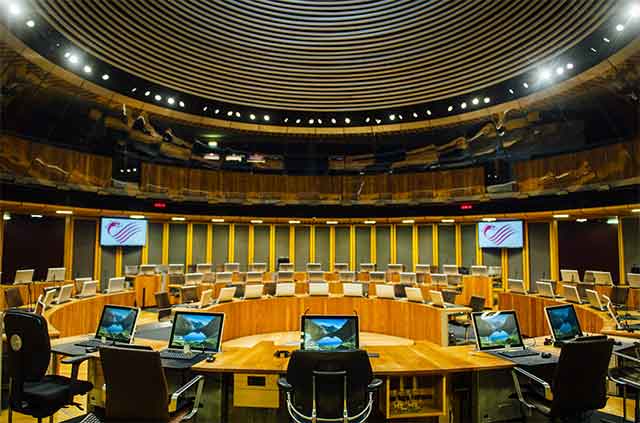Mark Drakeford confirmed the Welsh Government will publish a “business-as-usual” budget in the autumn as the next Senedd election nears.
Wales’ finance secretary said the 2026/27 budget will restate this financial year’s spending plans, plus an increase in line with inflation, ahead of the May 2026 election.
He told the Senedd: “This will not be a budget which focuses on new priorities or fresh policies. That, I believe, will be for political parties to put before the Welsh electorate.”
The former first minister said: “I don’t believe… it would be democratically consistent for a Senedd, in the final weeks of a five-year term, to constrain the newly elected parliament…. Those horizons lie beyond us – that opportunity will be for others to grasp.”
But the Labour politician said the Welsh Government would remain open to the possibility of working with other parties to deliver a more ambitious budget.
‘Uncertainty’
Prof Drakeford confirmed the Welsh Government will publish an outline draft budget on October 14, 2025, with a more detailed draft to follow on November 4.
In previous years, the draft budget has been published in mid-December – just before the Senedd breaks for Christmas, prompting concerns about scrutiny being curtailed.
The earlier timeframe will pose its own challenges with the UK Government autumn budget, which is likely to affect funding for Wales, expected in late October or early November.
Prof Drakeford will be presenting his sixth and final budget to the Senedd before standing down at the next election after decades at the centre of Welsh politics.
He told the Senedd: “We cannot let uncertainty over the UK Government’s autumn budget drive our own timelines and plans.”
‘Significant risk’
Giving a statement on June 1, Prof Drakeford said the politically neutral budget will make hundreds of millions available to get the next Senedd off to a stable and ambitious start.
He stated he would have liked – ideally – to bring forward a multi-year budget but the cabinet decided on a single-year “business-as-usual” budget due to the election.
Sam Rowlands, the Tories’ shadow finance secretary, welcomed an earlier-than-usual timeline, recognising the driver as next year’s poll.
But he expressed concerns with the “roll-over” budget, saying: “I think it’s fair to say the meat of the statement… is pretty unprecedented and actually very significant.”
Mr Rowlands added: “What is being presented is a reflection of the political reality that the [Welsh] Government finds itself in,” with a “significant risk” of next year’s budget not passing due to Labour lacking the numbers without support from at least one other Senedd member.
‘Catastrophic’
Prof Drakeford told the Senedd he was acutely aware of the danger of the budget not being agreed, warning it would have a catastrophic impact on public services. He said the restated budget is designed to maximise the chances of avoiding the risk.
Labour’s Mike Hedges supported a single-year budget in the final year of the term, with a new voting system set to “make it almost impossible” for a single party to win an election.
He said: “We don’t want teachers to be losing their jobs, we don’t want social workers not to be available to care for people because we were unwilling to pass a budget.”
Peredur Owen Griffiths, the Plaid Cymru chair of the Senedd’s finance committee, welcomed a return to a two-stage budget process for the first time in seven years.
Following scrutiny in the Senedd, the final 2026/27 budget will be published on January 20, with a debate and key vote to follow on January 27.

